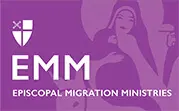Articles
4/4/19, UNHCR: Why including refugees makes economic sense
4/4/19, The Week: The future of climate change refugees
The PBS News Hour recently ran an excellent report on how climate problems are driving many farmers out of business in Honduras. One issue is drought — over the last decade or so, warming temperatures have created chronic rain shortfalls over much of the country, destroying whole crops and rendering traditional planting techniques impossible.
4/3/19, IndyWeek: Full Frame: A North Carolina Sanctuary Does the Word Justice in Santuario
4/3/19, Immigration Impact: ‘Your Client Is Going Bye-Bye.’ New Investigation Details Immigration Judges’ Cruel Behavior in El Paso Court
4/2/19, New York Times: Trump Wants to Cut Aid to Central America. Here Are Some of the Dozens of U.S.-Funded Programs.
4/2/19, NPR News: U.S. Decision To Cut Central America Aid Could Worsen Migrant Crisis, Experts Say
4/2/19, New York Times: Border Crackdowns Feed a Self-Reinforcing Cycle of Fear and Backlash
4/2/19, New York Times: Two Students Charged After Protesting Border Patrol Event at University of Arizona
The episode raised issues about the extent to which freedom of speech is allowed on college campuses. Customs and Border Protection, the nation’s main border protection agency and the largest law enforcement agency in the country, is at the forefront of the debate over undocumented immigration as it plays out along the southern border, including in Arizona.
4/1/19, PBS Newshour: Why Trump wants to cut aid to El Salvador, Guatemala and Honduras
4/1/19, New York Times: Where Does Aid to Central America Go? Police Officers, Farmers and NGOs
3/29/19, MPR News: Liberians in Minnesota welcome extension, look for permanent fix
3/28/19, NPR News: Trump Extends Deportation Protection For Liberians In The U.S.
But now, he said, “upon further reflection and review,” he has decided “it is in the foreign policy interest of the United States” to give Liberians another year, or until March 30, 2020, to stay in the United States. He added that the overall situation in West Africa “remains concerning.”
“The reintegration of DED beneficiaries into Liberian civil and political life will be a complex task, and an unsuccessful transition could strain United States-Liberian relations and undermine Liberia’s post-civil war strides toward democracy and political stability,” he said.
3/28/19, The Nation: American DREAMers, Artistic Dispatches from the Frontlines of Resistance
3/28/19, PBS Newshour: Why current U.S. immigration challenge reflects ‘complete political failure’
3/28/19, Politico: Here’s what’s driving the ‘crisis’ at the border
3/28/19, NBC News: DHS to ask Congress for sweeping authority to deport unaccompanied migrant children
Opinion
4/3/19, The Guardian: Please, Europe – treat the skills of refugees like me as an asset
4/3/19, New York Times: We Fled the Gangs in Honduras. Then the U.S. Government Took My Baby.
I am an asylum seeker from Honduras and a mother of three children. For over a month my youngest daughter was separated from her father and me by the United States government. I still don’t know where she was during that time or who took care of her.
She’s a toddler, so she can’t tell me if something bad happened to her. I don’t know if she thinks we chose to abandon her. All I know is she came back pounds thinner, with lice and a hacking cough, and she cried for days, traumatized by a government that keeps children from their parents because they are migrants.
4/1/19, New York Times Editorial Board: Trump’s Border ‘Solutions’ Will Make Things Worse
3/29/19, Refugee Studies Centre: ‘Self-reliance’ for refugees? Badly handled it can make matters worse
Publications
FitzGerald, D. S. (2019). Refuge Beyond Reach: How Rich Democracies Repel Asylum Seekers. Oxford University Press.
The author traces how rich democracies have deliberately and systematically shut down most legal paths to safety. Drawing on official government documents, information obtained via WikiLeaks, and interviews with asylum seekers, he finds that for ninety-nine percent of refugees, the only way to find safety in one of the prosperous democracies of the Global North is to reach its territory and then ask for asylum. The book identifies some pressure points and finds that a diffuse humanitarian obligation to help those in need is more difficult for governments to evade than the law alone. More information available at: https://t.co/BmD0KWoK0A excerpts from google scholar available at this link.
FMR 60 on Education – now online
Education is one of the most important aspects of our lives – vital to our development, our understanding and our personal and professional fulfilment throughout life. In times of crisis, however, millions of displaced young people miss out on months or years of education, and this is damaging to them and their families, as well as to their societies, both in the short and long term. In FMR issue 60, authors from around the world debate how better to enable access to quality education both in emergency settings and in resettlement and asylum contexts. Full articles available at: www.fmreview.org/education-displacement.

